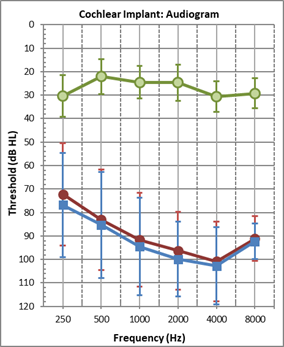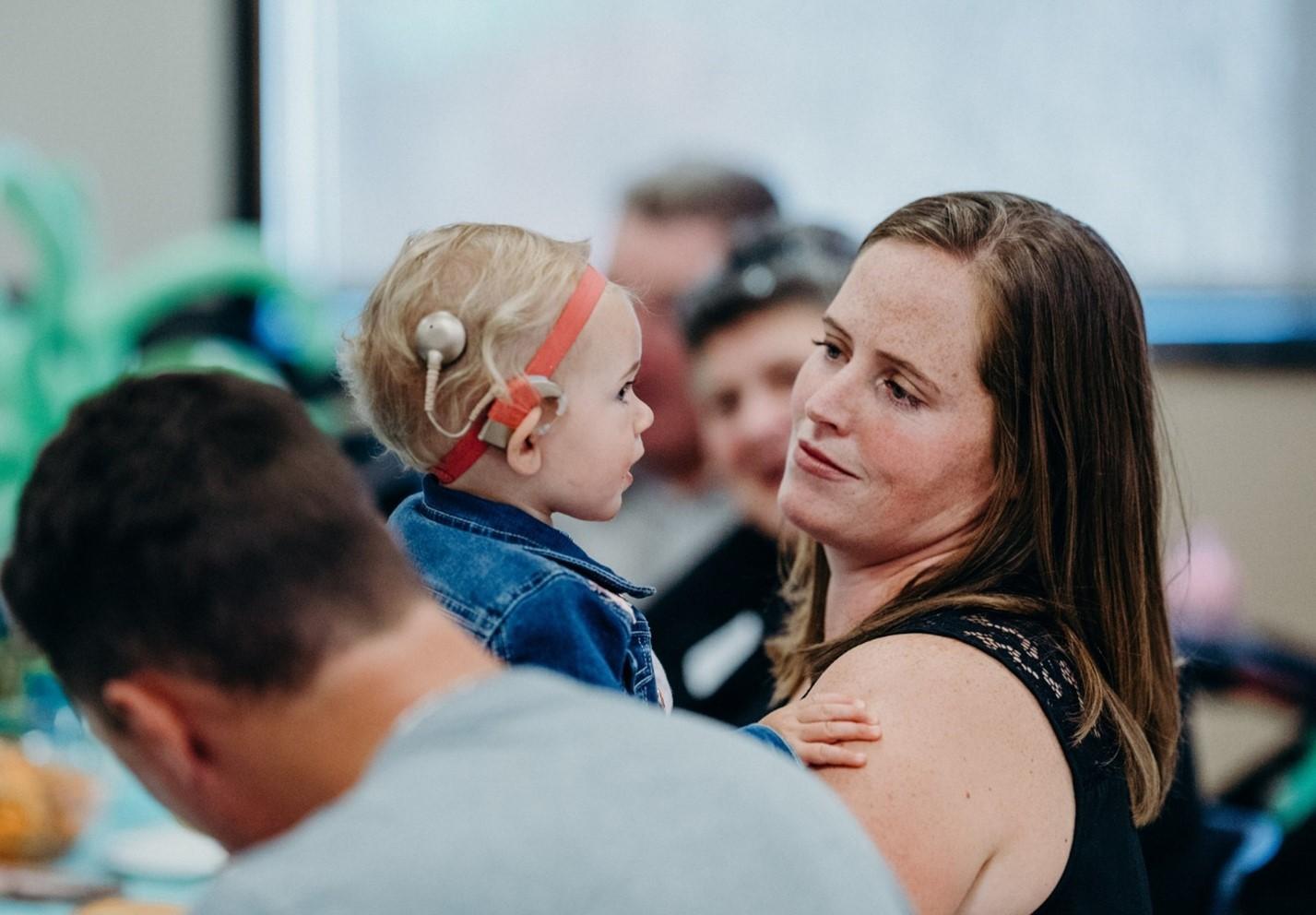Cochlear Implant Candidacy Process
- Once a referral is received, the patient will be required to attend an information session at the Central Speech & Hearing Clinic to learn more about candidacy criteria and the implantation process.
- After the information session, the patient undergoes a comprehensive audiological assessment.
- If deemed an audiological candidate for cochlear implantation, the patient will be referred for a CT scan, ENG (balance test) and surgical consultation.
- If medically eligible for cochlear implantation, the patient will be placed in the surgical queue.

Criteria for Cochlear Implantation – Adults:
- Severe to profound sensorineural hearing loss, bilaterally.
- Postlingually deafened (as defined by acquired deafness after the age of five years) or prelingually deafened adults who use spoken language as their primary mode of communication.
- Current hearing aid user demonstrating little or no benefit from a hearing aid as determined by aided speech perception testing.
- Appropriate expectations and motivation.
- Medical examination should show no contraindications for undergoing the operative or training procedure.

Criteria for Cochlear Implantation – Children:
- Bilateral severe to profound sensorineural hearing loss
- Congenital (present at birth)
- Pre-lingual (acquired before the age of two) or
- Post-lingual (acquired after the development of speech and language)
- Inadequate benefit from hearing aids (determined through a trial period of consistent hearing aid use)
- Participation in pre-implant evaluations and post implant follow-up services
- Family commitment to participating in Auditory-Verbal Therapy
- Enrolment in an educational setting that focuses on listening and spoken language as the primary mode of communication
- Appropriate expectations and motivation of caregivers and child to develop spoken language skills
- No medical contraindications to cochlear implantation



